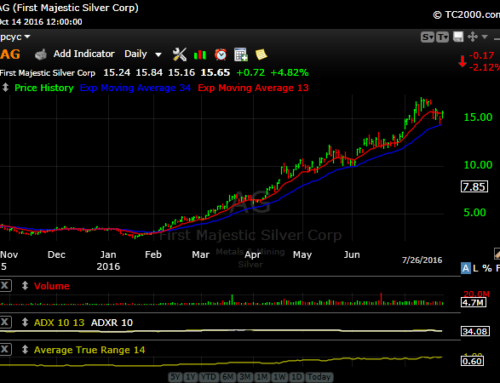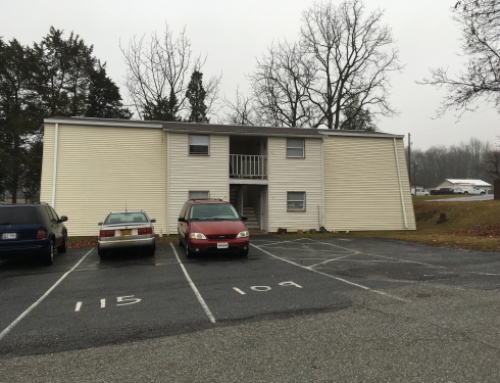If you’ve been paying attention to the crude oil market over the last couple of days, alarm bells should be going off in your head.
Yesterday, the May futures contract dropped below $0. That contract was set to expire today, so anyone who was short futures today were contractually obligated to deliver oil.
The problem was, nobody wanted to buy any physical oil, because there is nowhere to store it. As a result, in order to dump their contracts, they literally
Demand for oil has fallen off a cliff since travel has come to a standstill.
Today, the lead June crude oil futures contract traded down to $6.50 per barrel. That is the lowest price ever for crude oil futures, which began trading in 1983.
It was all fun and games when crude prices dropped to $20 a few weeks ago due to the Saudi-Russian trade war.
But, now, things are serious. We are looking at the collapse of a hugely important sector of the U.S. economy.
However, it doesn’t end there.
We are also seeing economic shutdown ripple effects in other commodities.
While many traders and investors are focused on the huge amount of money printing being done by the Treasury to try and stave off a recession, they have piled into gold as an inflation hedge.
Yet, other markets are hinting at DEFLATION.
Hog futures are at a three year low and threatening to make ten year lows. Corn futures touched their lowest price since 2006 today.
Back in mid-March, Platinum hit its lowest price in over 15 years. Copper prices hit multi-year lows at the time as well.
They bounced when negotiations started regarding stimulus packages, but those bounces may have come to an end as both were sharply lower today.
The Great Depression
The Great Depression that began in 1929 was the result of a sell-off in the stock market after a huge run-up. While the stock market crash was the catalyst, some blamed the government response for making the situation worse.
Between 1929 and 1932, global GDP fell by 15%. This compares to a global drop of just 1% during the Great Recession of 2008-2009.
The stock market crash had a significant psychological effect on the population, and this led to decreased consumer spending.
By mid-1930, auto sales plunged to 1928 levels and prices for goods began to decline. Crop prices began declining as well and then a drought hit in 1931, which crippled the farming industry, and this set off a deflationary spiral
The economic weakness in the U.S. then began to spread globally. Nations then began to implement protectionist policies to try and shore up their own economies. One such policy was the Smoot-Hawley Tariff Act in the U.S., signed by President Hoover in 1930.
By 1933, global trade had declined to one-third of its level just four years earlier.
At the height of the depression in 1933, unemployment soared to 25%, and while recovery began shortly after, it was still 15% in 1940.
The current economic crisis and why it could be worse than the Great Depression
The current economic crisis is essentially self-inflicted out of fear.
While the Covid-19 virus is a very serious health issue, and highly contagious, the reactions by state governments across the country, and other governments globally have caused severe consequences.
In the U.S., over 20 million people are now unemployed, when just two months ago, the economy had created nearly 300,000 new jobs.
Economists are now forecasting a contraction in the economy similar to what we experienced in the Great Depression.
Some of us have argued that you can’t just shut down the economy and then expect it to start right back up. That’s not how it works.
Businesses that are closing now will not re-open when the government says go. Those business owners have closed because they ran out of money.
This even includes hospitals in areas that are not hotspots.
Beaumont Health in Michigan today announced nearly 2,500 temporary layoffs, and 450 permanent layoffs.
Hospitals and other medical care providers are doing no elective surgeries and non-essential surgeries, and therefore, need fewer staff.
Those are not McDonald’s paying jobs. Those are skilled professionals being laid off who will now struggle to pay mortgages, rents, car payments, and will stop spending money.
Anecdotal evidence suggests that many people will be fearful of going out to crowded businesses in the foreseeable future when the restrictions are lifted.
Restaurants, hotels, airlines, dance clubs, bars, casinos, racetracks, sports stadiums, concert venues, etc will also continue to struggle in the foreseeable future.
The businesses that benefit from those big event type businesses will suffer as well.
Let’s not forget about the entire travel industry from the airlines to the travel agents. Fewer people will be willing to get on a plane or a cruise ship for a long time.
Energy Sector
I discussed oil prices earlier. Cheap oil is crushing our energy sector. As of 2018, this sector employed 6.5 million people.
Again, these are not low paying jobs. A number of years ago I read that a welder could make $100 per hour in North Dakota due to the shale oil boom.
The cost to produce oil from shale ranges from $40 to $95 per barrel. As long as oil prices remain this low, it makes no sense for those businesses to remain open.
If there is little travel demand, oil prices WILL stay low into the foreseeable future unless OPEC cuts production drastically.
I could go on and on about the impacts on the economy just from being shut down for a month.
This is why it is so critical that states begin to open back up now.
After The Great Depression
While there was some recovery, the Great Depression actually lasted throughout the 1930’s.
And what occurred at the end of that time?
World War II.
Hitler took power in Germany in 1933 after rising to prominence throughout the 1920’s after the devastation from World War I.
He and the Nazis exploited the economic difficulties that arose from the U.S. By 1933, unemployment in Germany was about 30%.
Initially, the Nazis continued some of the economic policies of their predecessors, which focused on public works, such as the Autobahn. However, the ultimate philosophy of the Nazis was economic expansion through war.
Thus, the focus of Hitler and his government was on military expansion and preparation for war. By 1939, the Nazis embarked on their economic expansion by invading Poland.
Germany was not the only country with such ambitions.
Japan was making waves throughout the Pacific during the 1930’s as well, starting in 1931 when it invaded Manchuria to protect its railroad interests there. By 1937, Japan and China were in full scale war and Japan needed resources to feed its ambitions.
Thus it started looking to the South Pacific for oil and rubber. Much of the South Pacific was already colonized. Japans invasions throughout the region did not get the response it expected, as the U.S. responded to the attack on Pearl Harbor with a declaration of war.
We also can’t forget Italy at the time under the fascist Mussolini and of course the Soviet Union under Stalin.
The bottom line was that a few countries sought to exploit a significant global depression by attempting to expand through the use of their military.
Could this happen again?
Absolutely. We still have plenty of bad actors on the planet, and the ambitions of China are as plain as day to see.
We need to overcome the fear and get back to work
At this point, the general public opinion is that we need to wait to reopen the country. About 2/3 of Americans agree with that sentiment.
However, there is a significant difference of opinion between two groups…those that are gainfully employed in businesses that have not yet impacted and those that have been laid off, or had their businesses shut down.
There is still significant fear among many people. That is completely understandable.
However, they ask the ridiculous question… are you willing to die for the economy?
Well, my answer to that is… if it means we avoid WWIII, then yes. I will be happy to put my life at risk by going to a restaurant so that our children and young adults can avoid fighting another war.
Because, the bottom line is this… there is a slight chance a significant war could break out if the world falls into an extended depression.
This has happened throughout history.
The fact is, the American Civil War was all about economics. The Confederate South’s economy was entirely dependent upon slavery, whereas the Union North was becoming heavily industrialized.
The northern states decided to impose their will on the south by outlawing slavery, and the rest is history.
It’s always about the economy. And, the worse the economy performs, the more dire the consequences.
Many people will try to say it’s different this time. We can recover and be stronger than before!
Really?
In my lifetime I’ve never seen us so divided. Politicians are trying to exploit the situation to grab more power, and are willing to hold up economic aid to get it.
People are out in the streets protesting the lockdowns, and are being mocked by those who still have work.
I’ve seen suggestions that people who protest to open the economy should sign waivers that shouldn’t be treated for Covid-19 if they get infected.
Yet, we have much bigger health issues in this country, starting with obesity.
Who tells people who suffer from obesity that they must sign a waiver that they can’t be treated for obesity related illnesses if they continue to eat junk all day?
It makes no sense to me that Arizona is on lockdown because New York City is dealing with a major health crisis.
With all this in mind, we need to come to agreement that areas that are not dealing with a massive number of Covid-19 infections can re-open with smart guidelines.
Getting more people back to work soon will be of significant benefit to all of us in the future.






Leave A Comment